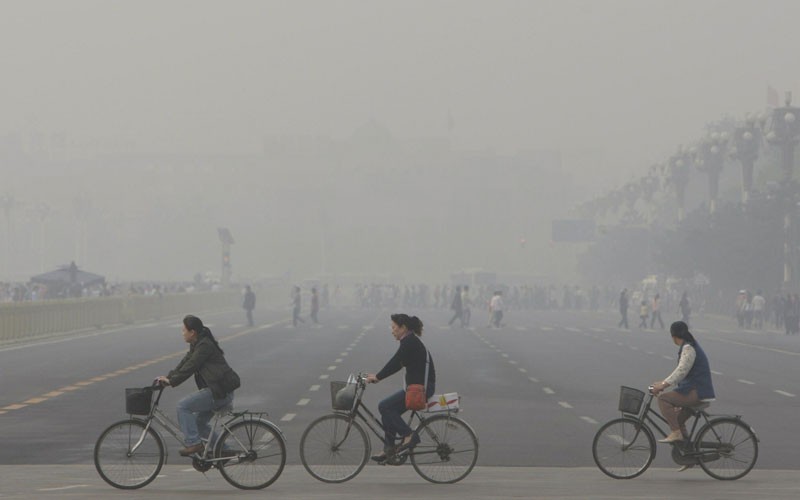
Health and climate change
In 2012, 7 million people died because of air pollution, warns the WHO
By the Editorial Staff
Monday | June 02, 2014 | 3:51 PM | Last update: September 22, 2016, 4:07 PM (Brasilia time)
The World Health Organization (WHO) calculates that one in eight of total global deaths was caused by air pollution exposure in 2012. Data confirm that bad air quality is now the world’s single biggest environmental health risk. Approximately 7 million people died due to air pollution, more than double in previous estimates.
+ Read “Be careful, we are breathing death!” by writer Paiva Netto
The new data, according to the United Nations specialized agency for health issues, reveal a stronger link between indoor and outdoor air pollution exposure and cardiovascular diseases, such as strokes and ischaemic heart disease, as well as between air pollution and cancer. This is in addition to air pollution’s role in the development of respiratory diseases, including acute respiratory infections and chronic obstructive pulmonary diseases.

The estimates are based on more knowledge about human exposure to air pollutants and more advanced technologies for measuring these data. This has allowed scientists to make a more detailed analysis of health risks from a wider demographic spread that now includes rural as well as urban areas.
"The risks from air pollution are now far greater than previously thought or understood, particularly for heart disease and strokes," said Dr. Maria Neira, Director of WHO’s Department for Public Health, Environment and Social Determinants of Health.
In regional terms, Southeast Asia and Western Pacific regions registered the largest number of deaths: 3.3 million linked to indoor air pollution and 2.6 million deaths related to outdoor air pollution.
"Poor women and children pay a heavy price from indoor air pollution since they spend more time at home breathing in smoke and soot from leaky coal and wood cook stoves," explained Dr. Flavia Bustreo, WHO Assistant Director-General for Family, Women’s and Children’s Health.
To take care of this debilitated health, the doctor Paulo Saldiva, Coordinator of the Atmospheric Pollution Laboratory of the University of São Paulo (USP), prescribes investments in urban planning, public transportation, and basic sanitation, demanding from the authorities integrated actions between ministries and secretariats. “We need to create a little bit of a more protective society for man; for this human being who lives on the outskirts, who needs to wake up very early to go to work, who gets elbowed around in inadequate collective transportation, who suffers the consequences of heat waves and low humidity, who has to get into the floodwaters to save his belongings when it rains, and who receives a massive dose of pollutants,” he warns.
The WHO highlights that reducing air pollution can save millions of lives. "Few risks have a greater impact on global health today than air pollution; the evidence signals the need for concerted action to clean up the air we all breathe," stressed Dr. Maria Neira.
Good initiatives in transportation

Na capital alemã, para cada mil habitantes há 720 bicicletas e apenas 320 carros. Todos os anos são investidos 5,5 milhões de euros na segurança das ciclovias.
Data collected from the cities of London (United Kingdom) and New Delhi (India) indicate a reduction in the sedentary lifestyle and in the local concentration of pollutants from measures taken to stimulate active mobility, like riding bicycles and walking, and the adoption of low-carbon emission engines (Woodcock, 2009). In the case of the British capital, it is estimated that the reduction in the incidence of heart diseases and cerebral ischemia is between 10% and 20%; of breast cancer, between 12% and 13%; of dementia by 8%; and depression by 5%. In the Indian capital, estimates indicate a reduction between 11% and 25% in heart and cerebrovascular diseases and between 6% and 17% in expenditure on diabetes. (Source: “Recommendations on Health C40 São Paulo Summit 2011”.)
Source: World Health Organization.


